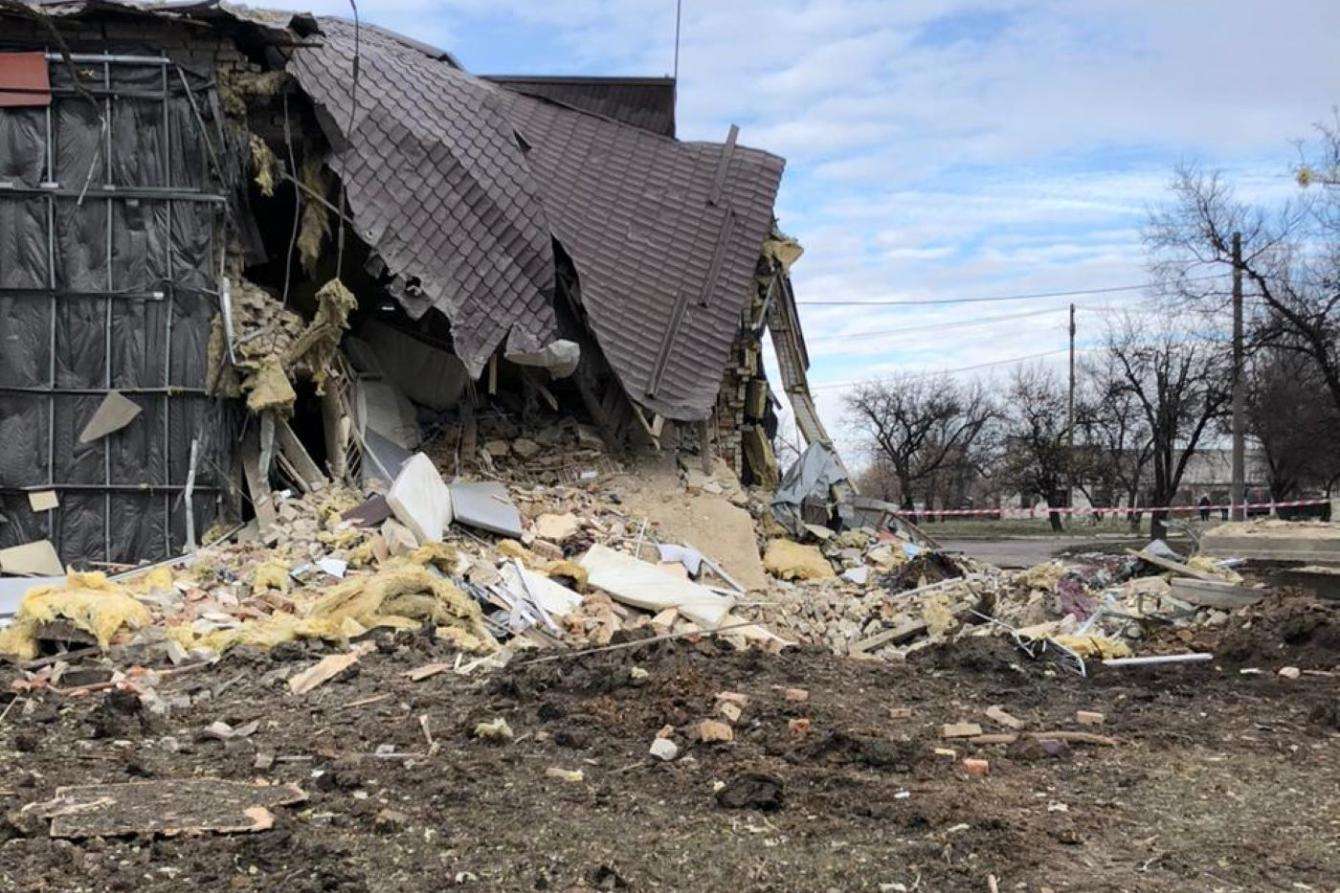KYIV/NEW YORK, November 27, 2023—Doctors Without Borders/Médecins Sans Frontières (MSF) staff directly witnessed two deadly attacks on Ukrainian hospitals this month, underlining the unacceptable violence against health care workers, patients and medical facilities in areas close to the front lines of the ongoing war with Russia.
On November 13, a hospital in the Kherson region was targeted with artillery, which destroyed 150 windows and badly damaged the emergency department where MSF staff worked. A Ministry of Health staff member died from injuries sustained during the attack, and another two people were injured.
On November 20, two missiles hit a hospital in Selydove, in the Donetsk region, killing three people. Eight people were injured, including two Ministry of Health staff, after part of the hospital collapsed from the missiles. Five MSF staff were present and were not harmed.

"We utterly condemn these abhorrent assaults on hospitals, which have resulted in the tragic deaths and injury of patients and medical personnel," said Vincenzo Porpiglia, MSF head of mission in Ukraine. "These attacks continue to put the lives of health care staff at risk and jeopardize our ability to deliver critical medical treatment to patients in dire need. Medical facilities are supposed to be places where lives are saved, not taken."
MSF ambulance team survived attack on Selydove hospital
The attack in Selydove struck close to an MSF ambulance team.
"At around 11:30 p.m., we began hearing explosions," said Artem Tretiakov, an MSF ambulance driver. "Initially, they seemed distant, but gradually they approached. Suddenly, a missile struck the room where I and other MSF staff were present. Fortunately, the impact was on the corner of the room, which is likely what saved us."
The MSF team immediately began providing emergency first aid for those injured inside the hospital. An additional intensive care ambulance and emergency team were also dispatched to the hospital in Selydove to provide further support.
"All the lights in the hospital premises went out," said Yevheniia Mitiaieva, an MSF doctor. "We proceeded to the corridor and enquired about anyone needing assistance. Using flashlights and mobile phones, we provided first aid, making makeshift bandages. An 80-year-old patient was in critical condition. He had multiple wounds from window glass that shattered during the explosions. After our initial treatment, we transferred him in one of our ambulances to another hospital for further medical care."
The hospital in Selydove sustained severe damage from the attack. Two MSF ambulances based there were also damaged. "The blast wave shattered the ambulance windows," explained Tretiakov. "Despite this, the vehicles remain operational and once the glass is replaced, we will resume our work."
MSF's work in Donetsk and Kherson regions
MSF has been working in the emergency room and intensive care unit of the hospital in Selydove since July and in the emergency room in the hospital in Kherson region since October. Following the recent attacks, MSF has been forced to temporarily suspend its presence inside these two hospitals. However, MSF is still supporting these facilities with ambulance referrals and remains present in the emergency departments of two others hospital in Kostiantynivka and in the Kherson region.
MSF first began supporting a hospital in Kostiantynivka in August 2022, running emergency department activities and providing surgical care. MSF then expanded into the hospital in Selydove in July 2023, and into two hospitals in Kherson in September and October 2023. Since MSF began working in all these hospitals, MSF staff have treated more than 3,000 patients in the emergency rooms, 78 percent of whom had wounds due to violence.
MSF is also continuing to conduct mobile clinics close to the front lines. In areas heavily affected by the war, such as in the Donetsk and Kherson regions, access to medical care has been severely disrupted due to the lack of health care staff and the destruction of health facilities. MSF mobile clinics ensure continuity of basic health care for people who remain in these areas, who are predominately older adults. So far in 2023, MSF's mobile clinics have provided more than 62,000 medical consultations.
MSF has also been operating ambulances in the Donetsk and Kherson regions since May 2022, which have transported 10,613 patients as of November 20.




